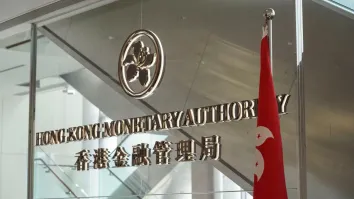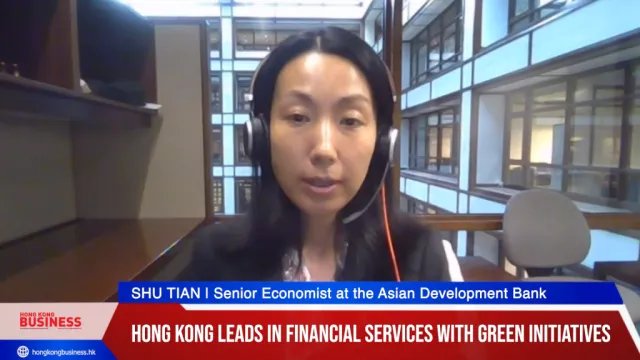Hong Kong’s tertiary education policy shift ignites co-living growth
By Hannah JeongGiven its defensive nature, the student accommodation sector is getting attention from forward-looking investors, providing a high-yield alternative to traditional asset classes.
The shortage of student accommodation in Hong Kong has been a pressing issue lately as tertiary educational institutions struggle to meet their students’ housing requirements. With limited supply and a growing number of local and non-local students, the demand for student housing has reached critical levels.
As of Q1 2024, Hong Kong’s prominent universities offer only 41,917 student beds for 180,801 students, 102,554 of which are full-time.
Recognising the gravity of the situation, the Legislative Council approved a one-off grant of HK$10,303 million to six universities in 2018 to address the shortage by implementing a policy that guarantees at least one year of accommodation for undergraduates, grants hostel places to non-local and research postgraduates and accommodates undergraduates who commute more than four hours a day.
Considering these goals, the projected shortfall for the 2018 academic year stood at 13,473 beds, per the Finance Committee’s estimation.
Latest developments and opportunities
In the 2023/2024 Policy Address, the Chief Executive of Hong Kong unveiled plans to transform the city into an international hub for post-secondary education. As part of this vision, the non-local student quota for undergraduate programmes in UGC-funded institutions will be doubled from 20 - 40%, starting from the 2024/25 academic year.
The significant change will likely increase non-local student enrolments and subsequently drive up the demand for student housing. Quickly recognising the potential, private investors take advantage of the tremendous opportunity to cater to this growing spill-over demand.
Projected shortfalls and demand outlook
Despite efforts to address the shortage, student hostel beds remain limited. All universities combined provide only 41,917 beds, with the top six UGC-funded institutions accounting for 35,014.
Even with the sponsorship from the hostel development fund, which aims to provide 13,473 additional hostel places between 2023-2027, our projection still reveals a significant shortfall in supply.
Assuming 35 % of local full-time and all non-local full-time students require accommodation, demand is expected to reach 50,195 by 2023/2024 and rise to 57,004 by 2027/2028 for UGC-funded programmes alone.
Despite efforts to alleviate the shortage, the projected shortfall of beds remains substantial, with an estimated deficit of 7,281 beds by 2027/2028, presenting a lucrative market opportunity for private investors.
Residential properties, co-living spaces, and purpose-built student accommodation are poised to benefit as students’ need for alternative housing solutions increases.
Existing market landscape
Despite this sector’s substantial potential, there is a noticeable absence of specialist institutional players, except for YX by Crystal Group. Most students currently lease subdivided apartments or residential units from individual investors.
Only a limited number of assets, such as YX83, YX Hill Road, Weave Studios Hung Hom, Youth Dorm, UniHall and Sunny House, are more suitable for university students regarding their design and market positioning. These assets provide 2,581 beds, with options ranging from HKD5,200 to 15,000 per month.
With the right product, investors could achieve significant rental premiums with accretive rental yields. Based on Colliers data, units smaller than 100 sq. ft. achieved a CAGR of 7.2% in the last five years.
Student accommodation enjoys high occupancy levels exceeding 90%, with stabilised net operating income (NOI) margins of 70-75% depending on its scale. Compared to traditional hotel assets, student accommodation provides a more anti-cyclical income stream and requires lower operating costs, including direct staff costs and sales and marketing expenses.
Risks and concerns
Whilst investing in student accommodation in Hong Kong presents strong fundamentals and enticing prospects, there is a flip side. These considerations should be carefully evaluated to ensure a comprehensive investment strategy: capex consideration and letting voids, CityU and HKBU may relocate to the Northern Metropolis, asset management fee payable to operators, investors need to build scale to optimise costs and achieve 75%+ NOI margins.
Yield analysis
Investors are generally very cautious about underwriting exit cap rates. Student accommodation captures demand on the hospitality side (catered short-stay with a hotel license) and the residential side (offering terms of up to a year). Most assets have a weighted average lease expiry of longer than six months.
This unique facet allows the asset owner to adjust their operating strategy while enjoying stable, foreseeable cash flow. With this in mind, valuers generally consider.
Even though there has been a lack of en-bloc student accommodation transactions in the last few years, Colliers has analysed the projected yield on the cost for multiple coliving/student projects since 2017. The yield on cost mostly touches the 4.0% mark upon conversion / renovation, no significant yield expansion has been observed for new deals in 2022 and 2023 despite the higher interest rate environment.
Conclusion
With the student accommodation sector riding a swift rental growth wave and the brighter outlook as the policy changes take hold, it offers tremendous opportunities for professional investors to tap into the market in Hong Kong.
Considering its risk-return characteristics, Colliers recognises that certain types of investors are particularly well-suited for this sector: insurance companies betting on long-term growth, developers and investors with substantial exposure to the commercial sector may also find value in diversifying their portfolios, and private universities seeking to secure hostel spaces without being involved in their construction and development.
With the increasing demand for student housing and the proven rental growth in the past years, private investors can capitalise on this underserved market, benefit from the anti-cyclical nature, and lower operating costs of student accommodation investments.




















 Advertise
Advertise






